Organizing collectively for resistance: conversations from diverse viewpoints
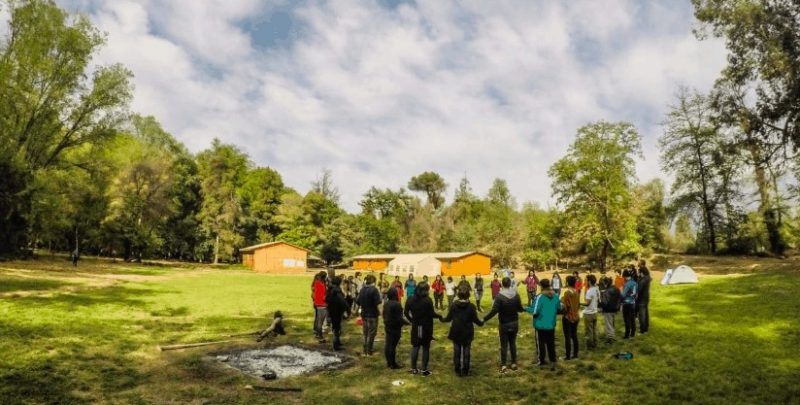
Written by Évora Barreiro, Women and Environmental Justice Program Consultant at FCAM
“It wasn’t the place, it was the people. So many stories, colors and struggles, but one shared purpose: to learn from our differences, to strengthen what unites us to defend our lands, the environment and our mother nature.”
— Catarina Bernal Brito, Asociación Q’Imb’Al (Q’Imb’Al Association), Guatemala
When talking about the work currently going into defending lands and the natural common goods that sustain us as a species, we need to talk about the new narrative led and promoted by young women, who, based on genuine political involvement and ideology, are on the frontlines of defending land. They are driving forwards and inspiring existing movements from new perspectives, which connect the human, the natural and the spiritual, and link feminism and ecology through a philosophy that has at its core the understanding that the Body and Earth that we must defend are one and the same; they are what constitutes us, what sustains us and what unites us.
In October 2019 in the southern latitudes of this continent, two meetings were held: one in Chile and the other in Peru. Women from all over Latin America and the Caribbean came together to discuss the key elements of organizations led by young women and the alternative practices that they are using as measures of resilience and resistance to the multiple forms of violence that plague us.
In the same month, the “Ayni Climático” Camp (Ayni Climate Justice Camp) took place nearby in Chile, and in Lima, Peru the Women and Biodiversity Meeting was held, as part of the III Congress of Protected Areas of Latin America and the Caribbean (popularly known as CAPLAC).
A few months later, we spoke with Yoseling, Maudy, Andrea, Catarina, Luz Marina and Raquel. Looking back, they spoke retrospectively about their participation, and shared their intimate reflections from the center of their being. As we listen to them talk we can’t help but be moved. They share with us their experiences from their different viewpoints and speak about how the resistance movement is growing collectively.
The organizations that these women all organize in and belong to have been Partners of the Women and Environmental Justice Program of FCAM in Central America since 2016.
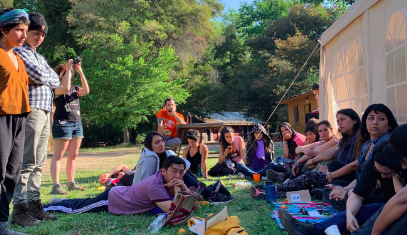
Yoseling Guardado, La Colectiva Feminista (The Feminist Collective), El Salvador
The concept of “Ayni” in Andean cultures refers to reciprocity and mutual support, and is built on the connection between the human, natural and spiritual worlds. In a few words, what did participating in the “Ayni Climático” Camp in Chile mean to you?
It was like a new and different way of seeing natural assets, because the capitalist and extractivist system we live in has put in our heads that “resources” are there just to satisfy our needs, rather than to live alongside those assets.
Getting to know the positions of different people with different worldviews and understandings of what life is; of what it means to live in reciprocity with the earth, with water, with the air, with our connections with other people; for me was a learning experience. It changed the way I look at natural assets and allowed me to internalize a little more the experience of the various struggles for resistance. Although the nature of each struggle is different in many ways, we always have a common ground, which will always be based on defending natural assets.
Did you feel that there was anything different about participation at this event compared to other types of spaces of the women’s and environmental movements that you’ve been part of?
Yes. First, all the people there were all young. We were women and men from quite different realities; urban, rural, …but the most beautiful thing was finding the common ground despite all our differences. To this I must add the space for spontaneity, the reciprocity that was generated and the autonomy that we had (especially as we weren’t obliged to participate in everything) – and also that we had the opportunity and the freedom to guide a workshop, share or talk with whoever you wanted. That was different, really nice and very valuable at the same time.

Maudy Ucelo, Asociación de Mujeres Xinkas de Santa María de Xalapán – AMISMAXAJ (The Association of Xinka Women from Santa María in Xalapán), Guatemala
This was an emotive experience for you: it was the first time you travelled outside your country and you also facilitated the act of opening of the camp with the fellow participants from different countries in Latin America. What did you feel on a personal level? What did this meeting mean for you as a woman, a young Xinka and as a defender of common goods?
As a young woman I felt very excited to be there, in an international space, representing the young women of AMISMAXAJ. It was beautiful and I can’t fully express it with words, although I felt a little nervous because I had never made the opening ceremony by myself before, and I was also outside my region, my country, my culture and my organization.
During the opening ceremony I felt that there were energies moving through me; that it was not me who was speaking, but the sum of the energies of my ancestors who expressed through me what our Xinka worldview is.
And what about for AMISMAXAJ?
I brought back with me a lot of information that has helped us with the organization and among my colleagues. While I was there I realized that not only are we fighting for the same thing, but also that we are all young people in different places. I feel that in Guatemala the contributions of young people who participate in spaces of resistance for the common good are not always connected or seen, and that’s a bit worrying. Sometimes I feel down – how is it possible that only some of us, who are so few, can make change happen in such small spaces? Seeing and meeting people from other countries representing other organizations filled me with great strength and encouraged me to continue fighting to defend our Mother Earth.
Were your experiences you had in the meeting very different from what you knew or what you have experienced before in Guatemala? Was there an experience or story from the Ayni that stood out for you?
I identified with several fellow participants from Colombia, Peru and Paraguay. The stories that impacted me the most were those from Peru, where youth organizations are leading very powerful resistance movements against mining. Hearing about it immediately recalled the confrontation we had with the mining company, and how we organized the sit-in in Santa María de Xalapán in response.
And although our homelands are far away, we have so much in common, not only in the fight for defending the land but in fighting for the rights of human rights defenders. And the story of Bernarda from Paraguay… (before continuing, there is a silence) …She and her family suffered criminalization and direct persecution, for defending Mother Earth against a mining company, and had to flee to a neighbouring country where she was given somewhere to stay. In my case, in our case as AMISMAXAJ, we didn’t reach that point. What surprises me the most is that Bernarda is not afraid, she will continue fighting and will give her life for the earth and for the common good, not because it’s in her interest but because it’s in all of our interest. That is admirable and fills me with strength, in the sense that as I gain experience in the organization, in my community, in my home and also as I share and listen to the experiences of my colleagues and companions I develop myself personally.


In one sentence: What was the most striking thing about participating in the “Ayni Climático” Climate Justice Camp?
The diversity, finding consensus within that diversity and the knowledge that we are taking on this practise from the historical customs of indigenous peoples, recognizing ourselves as being part of this continent America; lands that have roots, ancestral peoples and so much natural wealth.
As a young woman and land defender in a difficult context like Honduras, do you feel that this meeting has equipped you with more tools for your work?
Of course. It is important to know that people from different realities and countries are fighting for people’s dignity and that we can reach consensus about natural assets and build a minimum constituent (that’s what we decided to call it during the Ayni) from which to guide the different aspects.
We talked about the things that are most profound for us as young people: the respect and recognition of the diversity of nature, of cultures, of us as organizations, of different peoples and how our diversity gives us strength. It was also important to recognize all the experience that young people have, and the energies and the desire they have to build a totally different country, region and world from the current realities of these extractive and plundering projects. We are putting our hearts and our heads into this, strategizing with a clear head, and we are clear about what we’re fighting for, even though the paths we take to get there may not be completely clear. But there is something that we are certain about and that is that we want the world to be different and we have a responsibility to act, to do something. I think recognizing that was very important.
The Forum “Mujeres por la Vida” (“Women for Life”) is a space that brings together different community-based organizations of women, including young women, and therefore, the actions of resistance and political advocacy are very varied depending on each local context. Is there something that you experienced during the Ayni Camp that is very different from what you have been doing and that you would like to be able to put into practice with the Forum?
We have to admit that we have quite a few weaknesses in our artistic practices. We do generate our mandalas and have conversations about our ancestors, the women who came before us, but we have deep weaknesses in writing about these women, in investigating more, in remembering what their paths were and connecting them to us. There were some things that we (here in Honduras) have not yet talked about much, such as the ways of reusing garbage or doing advocacy work towards the international organizations that are making decisions on climate change and on the environment. Although we do a lot of advocacy work on the national level, we have to go beyond this in our thinking – for example, to change the research processes of the international organizations that are making decisions. I would like to put into practice some techniques that were mentioned in the Ayni to collect historical memory, for the systematization of resistance struggles as way to write our history.

In Honduras and in the lands you work in, the model of development that has been used is one that forces people from their homes because it leaves them with no way of continuing to survive. At the Ayni did you learn about any experiences that are pushing for respectful and sustainable models of production, and if so, do you think it is different from what Honduran women are seeking and demanding?
Of course it’s not (very different). That is exactly our fight: to build a political process that is respectful in every sense – towards us humans and towards nature, that takes care of ourselves and takes care of nature because nature is what nourishes us and it’s what we are most strongly connected with. We exist because nature, earth, spiritual energies exist… and because of that everything around us exists. So it’s not very different.
Our country is in a collective depression due to wrong decisions during the resistance movement and mistakes were made that continue to affect us a lot. After the coup d’état (2009) a very strong resistance movement arose and we women injected a great deal of energy into it, however, these energies were channelled in a way that got diverted away from what we were hoping for, and as a result we have a depressed country. This depression also makes us feel disappointed with the reality we live in, a reality in which thousands of families have to flee and emigrate. And I’m not talking about strangers, but our people; our family, our sisters, cousins, uncles who are leaving because we don’t have spaces in which to grow, to work, to study – the most basic things, we don’t have a way to feed ourselves.
It’s true that we have a very long and very strong history of migration, of course; but the levels of corruption, of violence against us women, against us young people … have reached scandalous and unbearable levels. We even have fellow members of our organization leaving. We have a political vision that includes all these dreams and goals, but the reality is also quite overwhelming. Those of us who stay are obliged to take on much more respectful, stronger projects, but we do so in solitude, because there are few of us left. The right approach is to offer something different because we know that the system we currently have is practically useless, it has collapsed and its only function is to continue keeping alive the parties that benefit.
What lessons did you take away from Ayni, in terms of uniting the efforts of the women’s and environmental movements in Honduras?
I think we do a lot of similar things, although we can see we have different practices. We managed to connect with each other, we recognized our connection. We share the objective that we as young people, women and diverse people be present and be direct protagonists of these resistance processes. We discussed the feminist movement, the movement for LGBTI diversity and how this diversity connects us in a very deep way, to the core of our bodies with all of nature, with the earth, with life in general. After all our goal is to defend our lands, our home and build a different system.
In the last three years, both movements have been connecting in a much stronger way, converging, with an overarching emphasis on the rights of women and the rights of our bodies, and a connection with the women’s movements that fight for land, for nature, for natural assets and common goods. We are moving in the right direction. Although there is still a lot to do and practices that must be taken up with greater force, such as producing our own food, stopping participating in the models of monoculture, and at the same time promoting alternatives like cooperatives or spaces for women that speak with greater force on feminist movements.
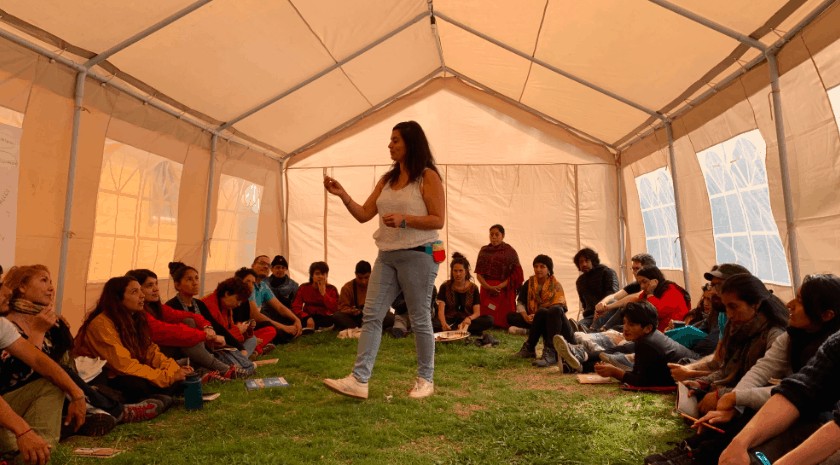
Catarina Bernal Britto, Asociación de Mujeres Tejedoras Q’Imb’Al (The Association of Women Weavers of Q’Imb’Al), Guatemala
What do you think was your greatest learning moment in this meeting?
My greatest learning moment was when we all formed one body and we saw that that this body is like our planet; there are many threats, but we ourselves have to be the change and we must take care of Mother Earth.
What actions are being carried out by young Ixil Mayan women in their communities to face the climate emergency?
We as young Ixil Mayan women are raising awareness about caring for the environment to combat climate change and how to continue cultivating using the ancient seeds that identify us as a people. We are encouraging people to stop consuming the canned foods promoted by big industries, and we propose reducing the use of plastic bags. In the face of the extractivist practices in the Ixil region (mainly the hydroelectric power plant and the felling of trees for commercial purposes), our response is organizing reforestation of the lands.
“‘Aby Yala’ means ripe land, land of blood; it’s made up of “Aby” which means blood and “Ala” which is like a space, a territory, which comes from the Great Mother. It’s a symbol of identity and respect for the world we live in…”
“The word Pachamama comes from the voices of the Quechua, from ‘Pacha’ (meaning ‘Earth’) and ‘Manka’ (meaning ‘pot’). So its meaning would be ‘pot of earth’, although it’s worth noting that in the Aymara language it means ‘food from the earth.”
— Luz Marina Valle

Luz Marina Valle, a campesina rural working woman and agricultural management engineer, Fundación Entre Mujeres – FEM (Between Women Foundation), Nicaragua
After having participated in the Women and Biodiversity Meeting and the III CAPLAC in Peru, what was your greatest learning on a personal and organizational level?
It was having learned about and shared successful experiences with other Latin American and Caribbean women, especially those committed to our lands and biocultural heritage. It was having had the opportunity to reflect on the need to build a new holistic approach to conservation, one which incorporates a transformative and intersectional gender perspective as part of the approach right from the beginning of any conservation project or strategy, including the voice and experience of women as an integral part of its theoretical and practical foundations.
It helped give me the better tools I can use to contribute to the work we do with rural women in the organization (FEM), specifically in our commitment to agro-ecology and environmental justice. It was interesting to participate and share our demands with other women, using a feminist, agro-ecological and conservation perspective that is, therefore, both transformative and intersectional.
The event gave me the means to apply a global strategy at the local level and ways to connect to others within network, so that our work is not seen as an isolated effort to rescue the ‘campesino’ (rural worker) identity and roots – but rather as a shared effort positioning ourselves politically against the capitalist, colonialist and patriarchal system of domination, and emancipating ourselves from all forms of oppression (including gender); and proposing actions related to the restoration of soils, forests, and ancestral knowledge, as well as the recovery of water sources.
One of the commitments you took on was to share the joint manifesto of Women and Biodiversity and get other women’s organizations and environmental defenders to join. Do you think it is easy to coordinate across Latin America and the Caribbean?
Coordinating with other women’s organizations and environmental defenders is possible, to join forces, as long as we share perspectives and choose methods of change that sustain life. We can see that it’s feasible to make alliances with organizations that share struggles, ideologies and proposals that accept ecological and sociocultural biodiversity and diverse knowledge that deviates from the dominant scientific ideology and incorporates ancestral knowledge and cultivation techniques.
What are the next steps?
To continue spreading tools to achieve gender equality across networks and local organizations – in particular the work which we carried out at the meeting of collectively building an agenda for women in conservation and which concluded with the Declaration of Women in Conservation. To continue creating spaces and meetings with organizations, to share their work and the real impact on women’s lives and communities, so that they can share experiences of their common struggles and join forces.
Analogue forestry, rescuing ancient seeds and the bio-intensive method are some alternative methods to use in the face of the climate crisis that we are experiencing – and this has been part of the work that the EMF has been coordinating for a long time. Did you learn about any other different practices?
The experience was very fruitful because it allowed us to share the work we are doing at the local level on climate-friendly alternatives, highlighting the need for a new narrative and ways of operating that clearly identify the faces of the people involved (in production) and that incorporate empathy, affection and care; that recognize the value of daily toil that goes in to conservation and bottom-up initiatives, and that connects people with the land and with themselves.
There are a variety of practices in use, such as the Milpa crop growing system in forest orchards, percolation trenches for water management, production of feed for livestock, silvopasture systems, water regulation systems, individual terracing for tree planting, mixed crop planting with perennial crops, permaculture and hydroponic systems, as concrete examples.
Part of your work is within protected areas. Were there any opportunities in the meeting to analyse and bring to light the work of women in conservation and protection? How could any of these practices be applied at the local level, in your daily work as FEM?
It’s important to make visible our contribution to countries’ economies and to bring to light the the important role that women play in conservation, especially those of us who work at the community level. We must not to lose the link between soil, water, forest and wildlife conservation and political advocacy actions.
In a few words, what feeling sums up your experience?
I have a sense of optimism, in the search of a better, more humane world to achieve social, environmental and economic justice for all living beings on the planet.
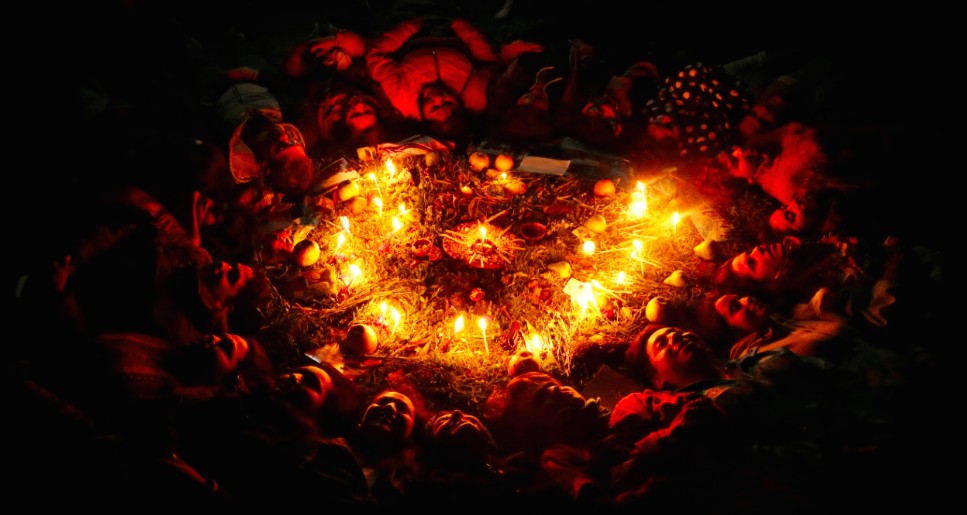
María Raquel Vásquez, Asociación de Mujeres Madre Tierra (Mother Earth Women’s Association), Guatemala
You were present at the closing session of the III CAPLAC, alongside other women in Latin America. Since then, have your demands as an indigenous woman and as a land defender remained the same?
Yes, although (the majority) of the participants are dedicated to conservation, during the discussions we went deeper into incorporating cultural and environmental perspectives and the ancestral knowledge of the original indigenous communities into conservation. We know that it’s necessary to strengthen these ties between women, so that all demands are defended in all spaces (such as the rights of women, young women and girls), in order to recognize the great effort we women put in to nature conservation and building up knowledge from different spheres, and the importance of living free of violence.
As ‘Madre Tierra’ (Mother Earth Women’s Association), you participate in other spaces at the national level focused on the reduction of climatic risks and pushing for the approval of an economic development law for women, which recognizes women as political subjects and as land owners. Do you think that there are similar agendas across Latin America and the Caribbean, or are there regional differences?
I have realized that, although we face the same problems, needs and even share some strategies, one of the most urgent feelings is the fight for access to land. This is still a largely unsolved problem in all countries – in contrast with the great efforts that we women have been making to achieve advances in agro-ecological production, in soil conservation and soil recovery, and in defending lands. These demands are felt more strongly among indigenous and ‘campesina’ rural working women.
Your fight is focused on raising awareness in the communities and educating, showing that change is possible through agro-ecological alternatives that counter the monoculture of cane, palm, pineapple and banana. Did you learn about any other conservation strategies that can be adapted to your context?
Yes, there are multiple strategies, although the contexts are different for many women and across regions, and even the development policies vary in each country. We are opting for an awareness-raising strategy that involves the entire community, focused mainly on the younger population as the group of “young eco-promoters”, and rescuing the ancestral knowledge that is part of our history. Through advocacy work, we’ve even managed to get these topics included in the school curriculum at Primary, Secondary and Baccalaureate levels.
I’ve come to understand that the struggles of all of us women are similar – and we all fight them from the place we find ourselves in. Academics do it through academia, while rural and indigenous women do it from their own space – but the important thing is how we bring all that knowledge together, to strengthen what each of us is already doing, and to elevate it to decision-makers.
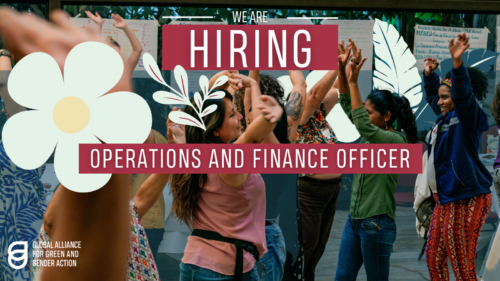
We Are Hiring: Operations and Finance Officer!
DEADLINE EXTENDED! Are you passionate about ensuring efficient financial management and operational excellence to support transformative work in climate, environmental,…
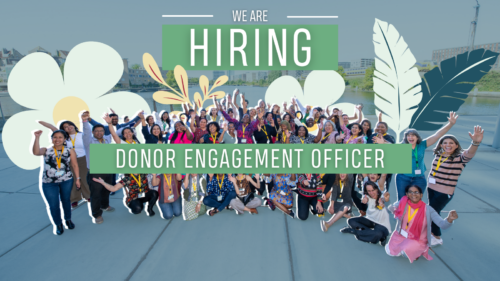
We Are Hiring: Donor Engagement Officer!
DEADLINE EXTENDED! Are you passionate about cultivating relationships and securing funding to support transformative work in climate, environmental, and gender…
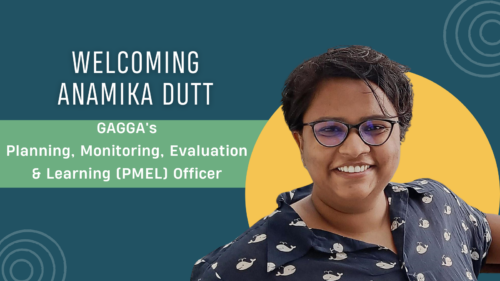
Welcoming Anamika Dutt As GAGGA’s Planning, Monitoring, Evaluation & Learning (PMEL) Officer!
Anamika Dutt is a feminist MEL practitioner from India. Anamika believes that stories of change and impact are best heard…
Subscribe to our newsletter
Sign up and keep up to date with our network's collective fight for a gender and environmentally just world.
